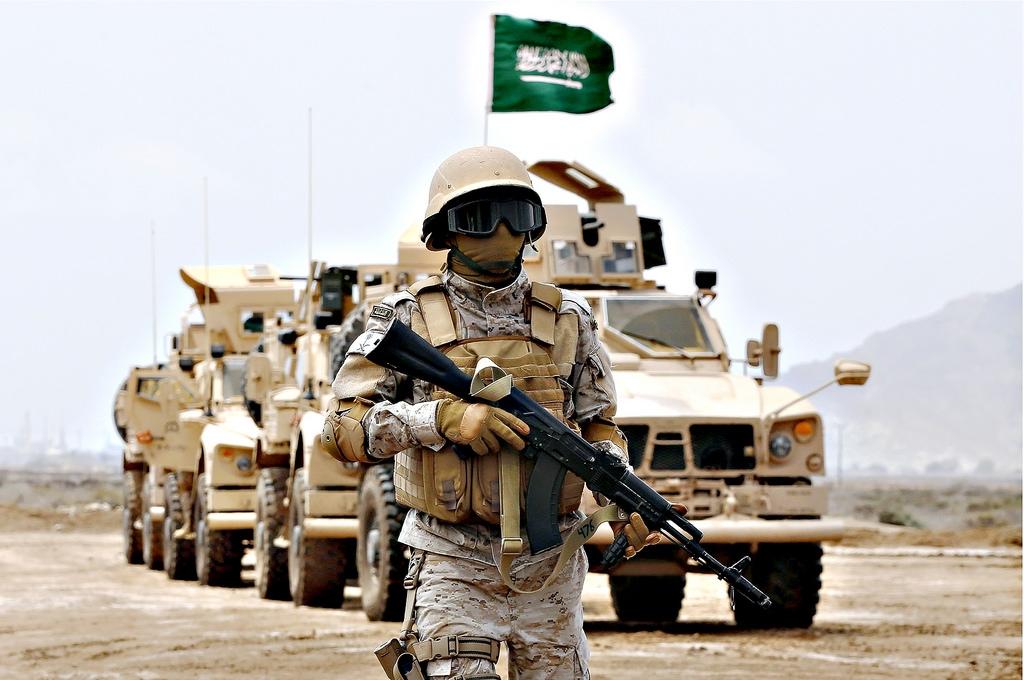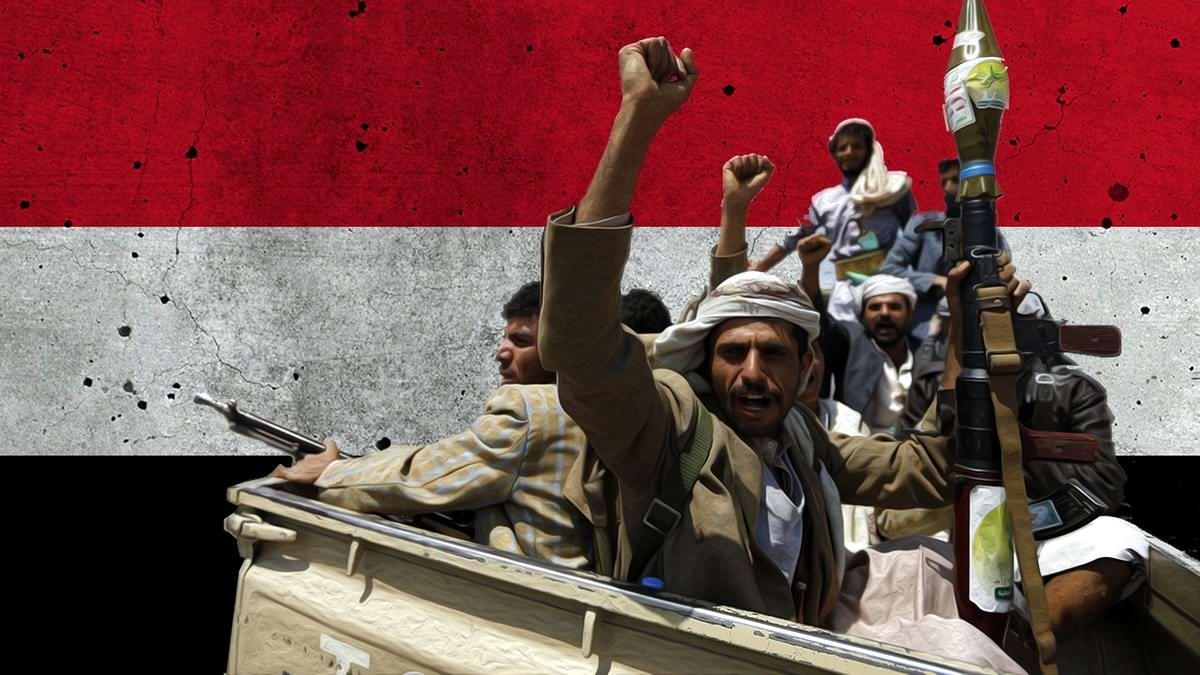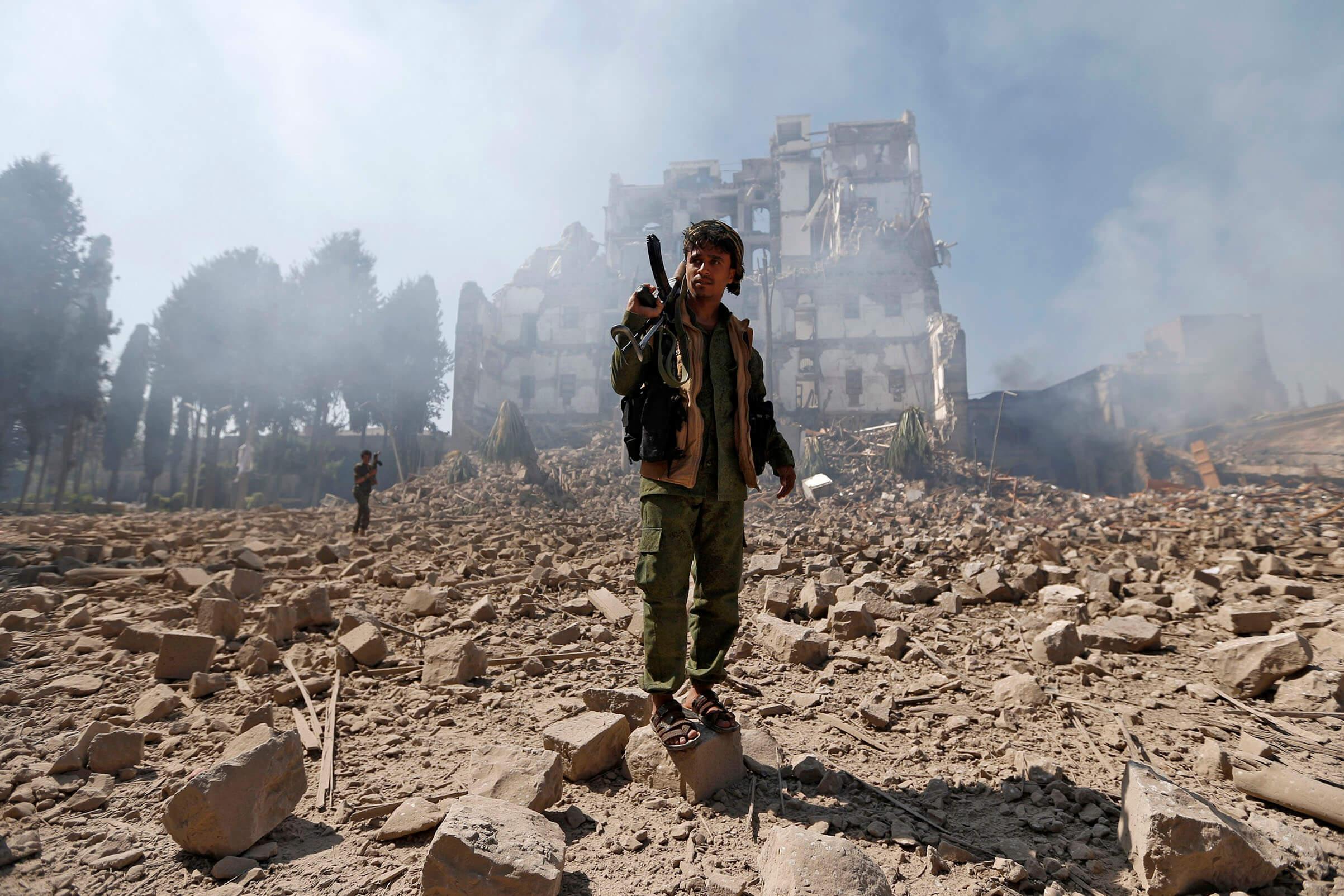How Yemen became the Red Sea "graveyard of empires"
Where coalitions come to perish
ANALYTICS 14 March 2024 - 12:12
| Artem Kirpichenok Caliber.Az |
In December 2023, the United States launched Operation Prosperity Guardian, a military campaign against the Houthi rebels who control a large part of Yemen. Alongside the United States, the international coalition includes Britain, France, Italy, Seychelles, Sri Lanka and others. Even Finland has sent eight highly trained and motivated soldiers. Despite its technical superiority, the coalition faces unforeseen obstacles and problems in Yemen, which has gained a reputation as the "graveyard of empires" over the last century, much like Afghanistan.
Yemen was first conquered by Britain, which captured Aden and its environs as early as 1839. Its global importance increased manifold after the Suez Canal was dug. It became the main transhipment and coal station on the route to India. It saw the construction of docks, warehouses, dockyards, barracks, churches and houses for colonial officials. Due to the harsh climate, it was mostly criminals and officers who were sent to Yemen to live out their days in exile.
After independence in 1947, Aden and other British outposts on the coast of the Arabian Peninsula became "bases on the road to nowhere". Britain inertially continued to dominate these lands in an attempt to maintain its imperial status, but the crisis of 1956 and the loss of control over the Suez Canal knocked them off their feet.
Revolutions, fuelled mainly by Egyptian propaganda, swept through the Arab world. Pan-Arab ideas also had an impact in Yemen. "Pictures of Nasser smiled down from every wall, and children, shouting out his name, laughed at the Europeans," wrote the British historian Piers Brandon.
From the early 1960s, the National Liberation Front turned against the British. Rebels organised strikes, riots and assassinations in the cities. In October 1963, a rebellion flared up in the border area of Radfan. Calling themselves the 'Wolves of Radfan' and loyal to no one, the local tribesmen had an ancient tradition of raiding and pillaging. They organised terrorist attacks on British Petroleum pipelines and assassinated sheikhs who sided with the British. The British were unable to pacify the restive tribes, despite using the latest military equipment, Centurion tanks, Hunter bombers, shelling villages and spraying poison on crops.

Things escalated after Israel won the 1967 Six-Day War. Radio Cairo rumbled that Britain was actively helping the Israelis. The Arabs of Aden took to the streets chanting: "A bullet against England is a bullet for Israel!" Mines and rockets flew at the British from all sides, even though they had posted warnings on their barracks, "Please do not fire rockets at this building, it is unsafe". Finally, in November 1967, the British were forced to leave Aden after more than one century of occupation. The evacuation was delayed only by the pro-British sheikhs, who took several days to remove their limousine collections and harems from the country.
At the same time, Britain's rivals, the Egyptians, were engaged in a war in northern Yemen. It was a consequence of the 1962 revolution that overthrew the monarchy in the Yemeni kingdom. The revolution was followed by a bloody civil war in which Britain and Saudi Arabia supported the royalists in northern Yemen, while Egypt and the USSR backed the republicans in the south. President Abdel Gamal Nasser decided to intervene in the conflict despite warnings from the Egyptian military mission in Sana'a that tanks would be ineffective in the mountains, aviation would not be able to operate at full strength, and supplying troops would be difficult.
The conflict that ensued confirmed the sceptics' predictions. Saudi Arabia was able to effectively supply the royalists based just outside its borders. Yemen's weak infrastructure forced the Egyptians to divide their forces into numerous garrisons, and their supplies relied mainly on air power. Finally, the declaration of a republic destroyed many of the traditional structures of Yemeni society and plunged parts of the south into a state of anarchy. The Egyptians were naturally perceived as a foreign force, and Yemenis had little sympathy for them.

It is worth noting that the Saudis' allies in the war against the Egyptians were the Shia Zeidite tribes and Iran, who united against the "godless" and the "communists". In this case, theological disputes took a back seat.
Finally, in August 1967, Cairo reached an agreement with Riyadh to withdraw Egyptian troops from Yemen in exchange for Saudi financial aid.
It goes without saying that in 2015, the Saudis "inherited" the initiative from the British and Egyptians and got involved in another war in the south of the Arabian Peninsula. In 2014-2015, the Shiite group Ansar Allah, better known to us as the Houthis seized power in most of Yemen. The country's president, Abd-Rabbu Mansour Hadi, was trapped in Aden. On March 25, 2015, his foreign minister, Riyad Yassin, called on Gulf Arab states to send troops to protect the legitimate government. The ensuing war between Iran, which supports the Houthis, and Saudi Arabia has become one of the fronts in the confrontation. In addition to the Saudis, the coalition included Kuwait, Egypt, Jordan, Qatar, the United Arab Emirates, Jordan, Pakistan, Qatar and Sudan. The grouping was pompously dubbed the 'Peninsula Shield', but in reality, most allies committed only a few aircraft each to the war against the Houthis.
In March 2015, the coalition began bombing Ansar Allah's positions in Yemen, but subsequent events showed that air power alone could not deliver victory. The fighting dragged on for months and then years. All this led to a deterioration of the humanitarian situation in the country. Hundreds of thousands of people were forced to flee their homes to escape the bombing. Women and children began to suffer from food shortages and Yemen was on the brink of a humanitarian catastrophe.
Unable to win by air, Saudi Arabia turned to ground operations, but it soon became clear that Riyadh, with its advanced military hardware and virtually unlimited financial resources, could not commit significant numbers of soldiers to the fight. For ground combat, the Saudis had to rely on allies or simply recruit mercenaries in the poorest countries of Africa and Latin America. As a result, coalition forces suffered setback after setback at the hands of Ansar Allah fighters who were more familiar with the terrain and more motivated.
The situation was further complicated by Iran's support for the Houthi rebels. Advanced missiles and drones emerged as weapons that levelled the playing field between the advanced powers and the insurgents. Rebel drones began attacking Saudi oil fields in 2019. For example, drones attacked the world's largest crude oil refinery at Abqaiq in the eastern part of Saudi Arabia. The resulting fire had a ripple effect on the global economy, halving Saudi oil production for several hours. A fragile truce was eventually reached between the Houthis and the Saudis in March 2023 as part of a Saudi-Iranian deal brokered by China, but it is unclear how this ceasefire will be maintained in light of recent events.

The great historian Gibbon wrote that "happy Arabia" was almost never conquered because it was a natural fortress, from its steep red-brown coast to its amber mountains. The desert and harsh climate served as additional defences. Since ancient times, life in Yemen has revolved around oases, forts or shrines controlled by powerful clans. Even the rule of the Ottoman Empire was nominal in these places. The Turks had to keep four divisions in Yemen to signal their presence.
The near future will be a test of whether the Saudi-led coalition will be able to overcome all these obstacles and achieve its goal of imposing its will on the militant Houthis.
Caliber.Az
|
1
|
700 tunnel shafts found in Rafah, 50 cross into Egypt Israel informs South Africa at UN top court
17 May 2024 - 15:56
|
|
2
|
All eyes on November 2024: Baku, Yerevan on verge of historic peace deal Nations poised to reconcile without mediators
15 May 2024 - 10:33
|
|
3
|
Uncertainty over Russian border guard withdrawal from Armenia Amid conflicting statements
18 May 2024 - 14:47
|
|
4
|
New Caledonia crisis mirrors Macron's hypocrisy on Azerbaijan France faces its own crisis
17 May 2024 - 17:20
|
|
5
|
France's coercive colonial policies in New Caledonia Hypocrisy, repression, struggle for self-determination
16 May 2024 - 17:29
|
Slovakia at pivotal moment after Robert Fico shooting
18 May 2024 - 22:10
Russia admits it can’t halt nighttime uncrewed surface vessel raids
18 May 2024 - 20:00
Palestinian resistance eliminates 15 Israeli soldiers in Rafah
18 May 2024 - 18:18
Slovak PM’s attacker pleads guilty before court — media
18 May 2024 - 18:08
White House not thrilled by Macron’s D-Day invite to Russia
18 May 2024 - 17:59
Poland to begin construction of Eastern Shield
18 May 2024 - 17:47
Resistance destroys 100 Israeli vehicles in 10 days
18 May 2024 - 17:32
Hungarian FM calls for Azerbaijani delegation's return to PACE
18 May 2024 - 17:17
Ambrey says Panama-flagged oil tanker attacked southwest of Yemen's Mokha
18 May 2024 - 17:02
Pakistan, India issue warnings to students in Kyrgyzstan after mob violence
18 May 2024 - 16:47
New Croatian government receives confidence vote in Zagreb assembly
18 May 2024 - 16:36
Presidential couple attend inauguration, groundbreaking ceremonies in de-occupied territories
18 May 2024 - 16:30
Zelenskyy expects Russia to intensify offensive in northeast Ukraine
18 May 2024 - 16:24
Azerbaijan participates in 79th CISM General Assembly and Congress
18 May 2024 - 16:12
White House: “No surprise” over strengthening Russia-China alliance
18 May 2024 - 16:00
Five activists from Yerevan's revanchist movement released after detention
18 May 2024 - 15:47
China probes agriculture minister for suspected disciplinary violations
18 May 2024 - 15:36
Azerbaijani marine special forces involved in military exercises in Türkiye
PHOTO18 May 2024 - 15:24
German lawmakers suggest allies could protect sky over western Ukraine from NATO soil
18 May 2024 - 15:12
French authorities report sixth fatality in New Caledonia violence
18 May 2024 - 14:59
Uncertainty over Russian border guard withdrawal from Armenia
Amid conflicting statements18 May 2024 - 14:47
Azerbaijan, Iran set to inaugurate Qiz Qalasi hydroelectric complex on Araz River
18 May 2024 - 14:35
Future of nuclear energy: balancing clean power, safety, innovation
Caliber.Az on YouTube18 May 2024 - 14:23
Australia applies sanctions for North Korea arms supply
18 May 2024 - 14:08
US: 30 years for man who attacked Nancy Pelosi's husband
18 May 2024 - 13:53
Azerbaijani gas supplies to Europe via TAP surpass 35 billion cubic meters
18 May 2024 - 13:40
US says drone strikes on Russia hurt fuel supplies but not power
18 May 2024 - 13:28
COP29 at crossroads in Azerbaijan with focus on climate finance
Article by The Guardian18 May 2024 - 13:17
Azerbaijan seize Armenian weapons, ammunition in Khankandi, surrounding areas
PHOTO/VIDEO18 May 2024 - 13:03
Azerbaijani Army achieves substantial mine clearance in liberated territories
PHOTO/VIDEO18 May 2024 - 12:50
North Korean president guides tactical missile test with “autonomous navigation”
18 May 2024 - 12:38
Armenia, Netherlands mull bilateral relations, Baku-Yerevan peace treaty
18 May 2024 - 12:26
Azerbaijan sets priorities ahead of COP29
"Green" financing, ESG implementation18 May 2024 - 12:13
Pashinyan visits border village to persuade discontented residents, claims revanchist archbishop
18 May 2024 - 12:03
Gunmen kill three Spanish tourists in Afghanistan's central Bamyan province
18 May 2024 - 12:00
Israeli strike on West Bank's Jenin kills alleged militant leader, injures 8
18 May 2024 - 11:48
Turkish transport minister outlines timeline for Zangezur corridor launch
18 May 2024 - 11:38
Senegalese prime minister criticises French military bases on territory
18 May 2024 - 11:37
Azerbaijani oil price nears $85
18 May 2024 - 11:24
IAEA chief Rafael Grossi to discuss Zaporizhzhya NPP in Russia visit
18 May 2024 - 11:12
